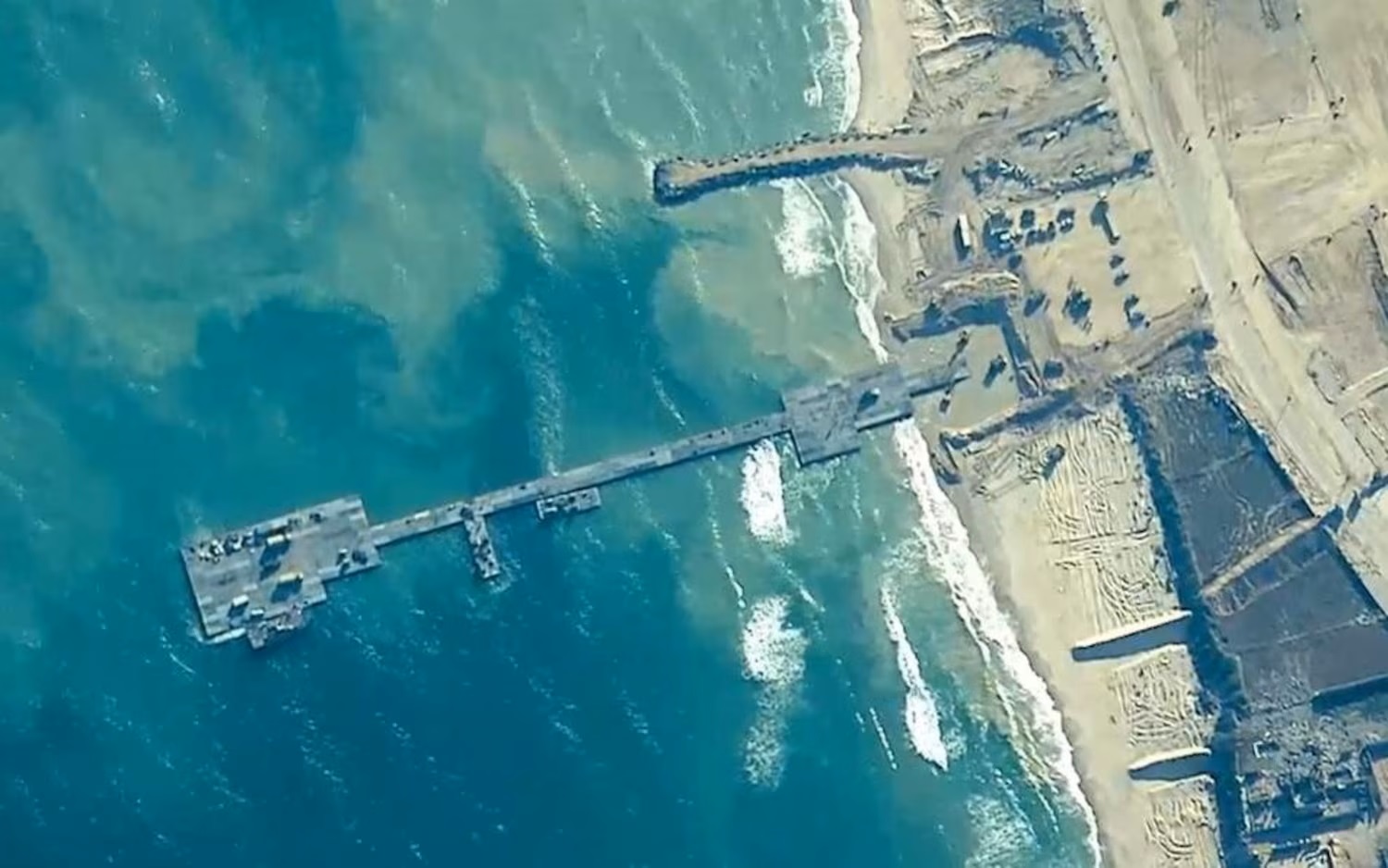An Iraqi militia has issued a new threat to U.S. troops in the region, warning them it would not be a peaceful winter, even as a temporary truce in the Israel-Hamas war has largely held across the region.
The group known as "Ashab al-Kahf" or "Companions of the Cave"—a reference to a centuries-old tale found in both Christian writing and the Quran about a group of monotheistic youths who hid in a cave to escape religious persecution—issued the warning Tuesday on social media alongside an image of what appeared to be U.S. soldiers carrying an injured comrade.
"Unusually, your winter will not be cold," the statement said in both Arabic and English. "Fire awaits you ... Our missiles and drones have the final say."
The statement comes after more than five weeks of daily rocket and drone attacks against U.S. troops in Iraq and Syria, claimed by a coalition of Iraqi militias calling itself "the Islamic Resistance in Iraq," a term used by Ashab al-Kahf and a number of other armed factions in the country.
The Islamic Resistance in Iraq has expressed its solidarity with Gaza, where the Israel Defense Forces (IDF) has clashed with Hamas and other Palestinian groups since war broke out with a Hamas-led surprise attack on Israel October 7.

The U.S. has since conducted several rounds of strikes on such Iraqi militias, which the Pentagon has tied to Iran and its Islamic Revolutionary Guard Corps (IRGC), in Iraq and Syria. The latest series of back-to-back U.S. strikes conducted last week in the run-up to the Israel-Hamas ceasefire led to the deaths of several members of Kataib Hezbollah, another powerful Iraqi militia aligned with the Islamic Resistance in Iraq.
The Iraqi government, an official of which previously expressed to Newsweek concern over the war in Gaza potentially spreading to Baghdad, has condemned both the U.S. strikes as well as unsanctioned activity by armed factions at home.
While both Washington and Tehran have forged close ties to the Iraqi government in the two decades since the U.S.-led invasion toppled longtime President Saddam Hussein, Shiite Muslim militias supported by Iran have often clashed with U.S. troops amid periods of unrest. Such clashes played out for years to deadly effect after the invasion as the U.S. also contended with a hardcore Sunni Muslim insurgency that ultimately gave rise to the Islamic State militant group (ISIS), which both the U.S. and Iran then devoted extensive efforts to defeat in Iraq and Syria.
After ISIS' downfall and amid worsening U.S.-Iran relations, a new fatal cycle of escalations emerged in 2019, the year Ashab al-Kahf first appeared. Militias now under the umbrella of the Iraqi state-backed Popular Mobilization Forces took aim at U.S. troops, culminating in the U.S. killing of IRGC Quds Force commander Major General Qassem Soleimani and Popular Mobilization Forces deputy chief Abu Mahdi al-Muhandis in January 2020.
With tensions flaring again today over the war in Gaza, National Security Council Strategic Communications Coordinator John Kirby addressed the latest U.S. operations as well as the decision to add further assets to an already heightened force posture in the region amid fears of growing unrest during a White House press conference on Monday.
"We've responded forcefully against the threats to our forces in Iraq and Syria and now our forces in the Gulf region, in the Gulf of Oman, Gulf of Aden," Kirby said. "We'll continue to do that as appropriate."
While the Islamic Resistance in Iraq claimed several more attacks against U.S. positions at Harir, Erbil and Ayn Al Asad airbases in Iraq and the Omar and Conoco oil and gas fields in Syria in the wake of the U.S. strikes, no new operations have been announced since the Israel-Hamas ceasefire deal took effect last Thursday to allow for the release of hostages and prisoners as well as the flow of aid into Gaza. The agreement was later extended Monday for an additional two days.
On Saturday, amid the truce, the Islamic Resistance in Iraq shared a graphic mapping out some 75 attacks on U.S. military positions across Iraq and Syria, as well as three attacks against Israel, that took place in past weeks. The image warned that "no American and no Israeli is safe" and that "land and sea are in the crosshairs of the resistance."
That same day, Kataib Hezbollah issued a statement announcing "a reduction in the escalation of operations against the bases of the United States occupation in the region and their cessation against the Zionist entity until the end of the truce period or the fighting in Palestine and its borders with Lebanon."
At the same time, the group emphasized that "confrontations with the occupying forces of Iraq will not stop until it is liberated."

The Israel-Hamas truce, which has so far held despite rival accusations of violations, has also led to a de-escalation in clashes between Israeli forces and Lebanon's Hezbollah movement, as well as across the Red Sea, where Yemen's Ansar Allah movement, also known as the Houthis, has fired missiles and drones against Israel in past weeks.
While negotiations, mediated by Qatar and Egypt, reportedly continue to seek additional extensions to the pause in fighting, Israeli Prime Minister Benjamin Netanyahu has asserted that there would be no lasting halt to the offensive in Gaza unless Hamas was comprehensively defeated or surrendered. The U.S. has also backed this position, even as a growing number of countries, especially those in the region, and the United Nations, called for an end to the war.
Tehran, for its part, has also called for an end to the conflict and has repeatedly denied that it held any control over the so-called "Axis of Resistance" groups targeting U.S. troops or Israel.
Speaking to Al Jazeera in an interview published Tuesday, Iranian Foreign Minister Hossein Amir-Abdollahian warned that the U.S. and Israel would face "harsh consequences" over the ongoing conflict in Gaza and described the actions of various involved militias as a "natural reaction of resistance forces in the region."
Uncommon Knowledge
Newsweek is committed to challenging conventional wisdom and finding connections in the search for common ground.
Newsweek is committed to challenging conventional wisdom and finding connections in the search for common ground.
About the writer
Based in his hometown of Staten Island, New York City, Tom O'Connor is an award-winning Senior Writer of Foreign Policy ... Read more





